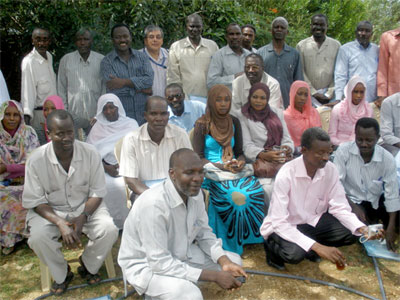Syracuse Views Summer 2025
We want to know how you experience Syracuse University. Take a photo and share it with us. We select photos from a variety of sources. Submit photos of your University experience by sending them directly to Syracuse University News at…


 The civil war began in 2003 as opposition groups within Darfur launched military campaigns against the Khartoum government in the East African nation. Tens of thousands of people are believed to have died in the conflict and more than 1 million people have been displaced, many living in camps, according to United Nations reports. There have been recent peace agreements between the government and rebel groups, but insecurity and violence remain.
The civil war began in 2003 as opposition groups within Darfur launched military campaigns against the Khartoum government in the East African nation. Tens of thousands of people are believed to have died in the conflict and more than 1 million people have been displaced, many living in camps, according to United Nations reports. There have been recent peace agreements between the government and rebel groups, but insecurity and violence remain.